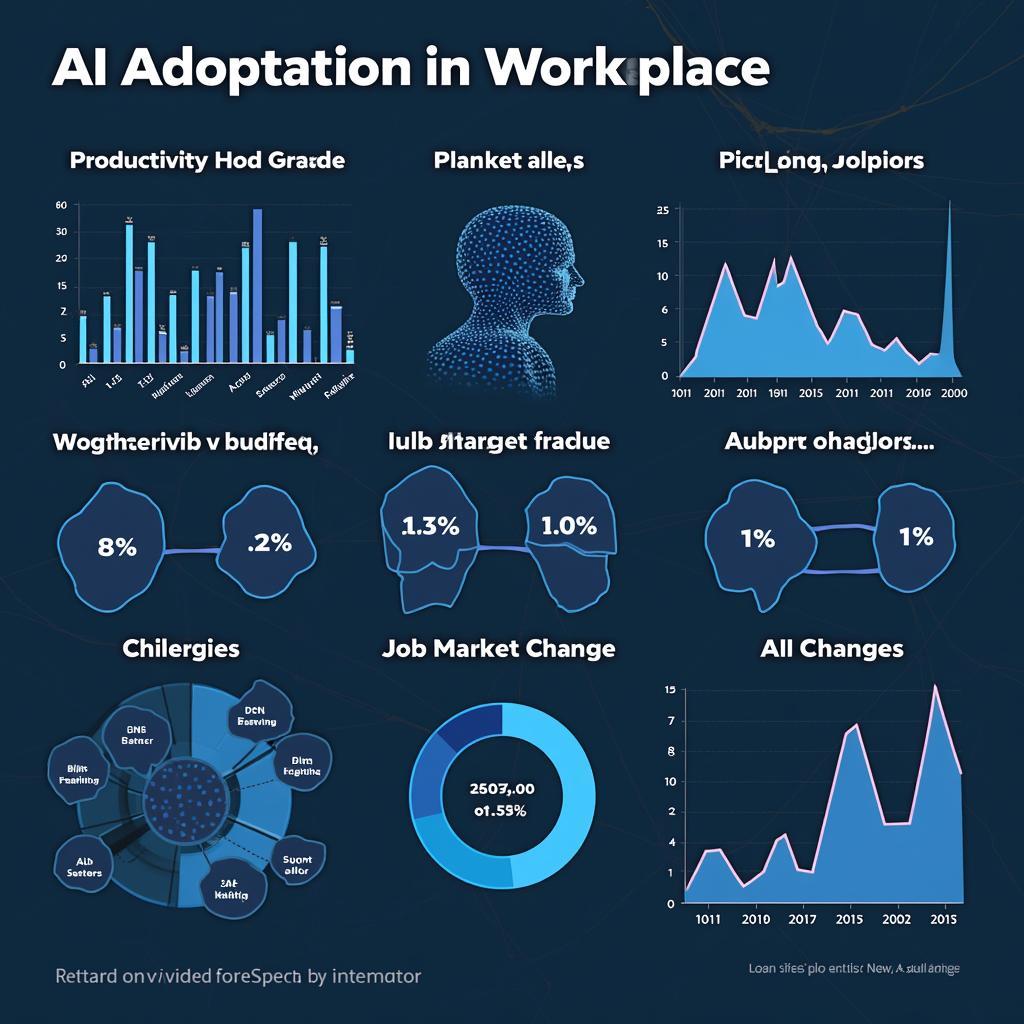The topic of artificial intelligence’s impact on workforce productivity has become increasingly prevalent in IELTS Writing Task 2 examinations. Based on recent test analysis from major IELTS testing centers, this theme has appeared multiple times in various forms, particularly in agree/disagree and discussion type questions. Let’s explore a common question format and analyze sample responses across different band scores.
 AI and workforce productivity discussion in IELTS Writing Task 2
AI and workforce productivity discussion in IELTS Writing Task 2
Task Analysis
Some people believe that artificial intelligence (AI) will significantly increase workplace productivity, while others argue it may lead to job displacement and reduced human involvement. Discuss both views and give your opinion.
This question requires candidates to:
- Discuss both positive and negative perspectives
- Provide relevant examples and explanations
- Present a clear personal stance
- Maintain a balanced approach while expressing opinion
Band 8-9 Sample Essay
Similar to role of AI in enhancing business efficiency, the integration of artificial intelligence in workplaces presents both opportunities and challenges. While AI undoubtedly enhances operational efficiency, its impact on human employment requires careful consideration.
AI’s potential to boost workplace productivity is remarkable. Advanced algorithms can process vast amounts of data within seconds, enabling faster decision-making and reducing human error. For instance, in financial institutions, AI-powered systems can analyze market trends and execute trades more efficiently than human traders. Additionally, automation of routine tasks allows employees to focus on more creative and strategic responsibilities, ultimately increasing overall productivity.
However, concerns about The impact of technological unemployment are equally valid. The implementation of AI systems may lead to significant job displacement, particularly in sectors heavily reliant on routine tasks. Manufacturing workers and data entry professionals face the greatest risk of being replaced by automated systems. This transformation could create social and economic challenges, potentially leading to increased unemployment rates in certain sectors.
 Impact of AI automation on workplace transformation and productivity
Impact of AI automation on workplace transformation and productivity
In my opinion, while AI will inevitably transform the workplace, its benefits outweigh the drawbacks when properly managed. The key lies in developing a balanced approach where AI complements human capabilities rather than replacing them entirely. Organizations should invest in reskilling programs to help workers adapt to new roles that emerge from technological advancement, similar to how automation is reshaping supply chain management.
Band 6-7 Sample Essay
Artificial intelligence is changing how we work. Some people think it makes work better, while others worry about losing jobs.
AI helps companies work faster and better. Computers can do calculations quickly and don’t make mistakes like humans. For example, in customer service, chatbots can answer simple questions 24/7, helping more customers. This makes companies more productive and saves money.
But there are problems too. Many workers might lose their jobs because machines can do their work. This is especially true for factory workers and office staff who do simple tasks. When people lose jobs, it creates problems for society and the economy.
I think AI has more good points than bad points. Companies should use AI but also help workers learn new skills. This way, people can find different jobs when AI takes over some tasks. The government should also make rules about using AI fairly.
Vocabulary Analysis
- Integration (n) /ˌɪntɪˈɡreɪʃn/ – the act of combining or adding parts to make a unified whole
- Algorithms (n) /ˈælɡəˌrɪðəmz/ – a process or set of rules followed in calculations or problem-solving
- Displacement (n) /dɪsˈpleɪsmənt/ – the moving of something from its usual place or position
- Implementation (n) /ˌɪmplɪmenˈteɪʃn/ – the process of putting a plan into action
- Complementing (v) /ˈkɒmplɪmentɪŋ/ – adding to something in a way that enhances or improves it
Conclusion
This topic will likely continue appearing in IELTS Writing Task 2, possibly in different formats such as advantages/disadvantages or problem/solution essays. Practice writing about related themes like:
- The role of AI in education
- Ethical considerations in AI development
- AI’s impact on specific industries
Share your practice essays in the comments section for feedback and improvement suggestions.


